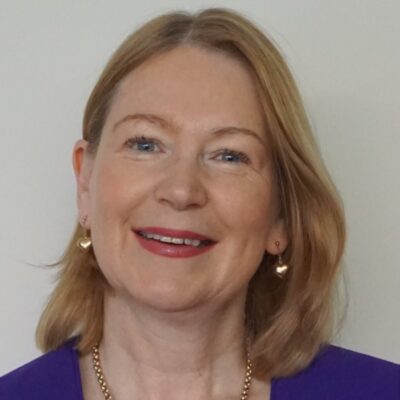Sue Conder
Sue Conder is a former Deloitte Partner with over 25 years of experience in organisational change and leadership development. As an experienced business psychologist, Sue is passionate about ‘Embracing Your Third Act’.
“I have had the privilege of working with hundreds of executives over the course of 30 years. I have also carried out a lot of research into executive transitions and executives leaving a big job in their 40s and 50s. I love the concept of thinking about life in stages. Our first act is education or preparation, our second is the age of achievement or the ‘big job’ and our Third Act runs broadly from ages 45 to 75, made possible by longer life expectancy. If you think about it, we have an extra 30 years, that has not been available to previous generations.
In the Third Act, focus shifts to an internal sense of, and a desire for, personal fulfilment and meaning. It’s about finding ways to contribute, which relate to what we are passionate about and good at. When people leave work or change direction, they are often at the stage of their lives where they need to consider, reinvent or set out a different future. The Third Act may or may not involve some form of work, perhaps a portfolio. For some, it may mean possibly pivoting into something aligned to what they have already done or it could be something completely different. At this life-stage, people often find the opinions of others and achievements (such as status, position, and income) typically become less important than they once were.
For many it starts with a period of exploration followed by experimentation to understand the difference between success and fulfilment. Despite the enormous opportunity that this period of life promises, many may have a sense of dread with a feeling of ‘falling off the cliff’.
It’s a time to ask yourself the right kinds of questions:
The ‘what’ is often the first thing people think about: what shall I do when I leave the big job?
There is a lot of research about how to be successful and happy in the second half of life. This is the time to do some robust thinking at the right time so that you make the right choices and decisions to avoid regret further down the road.
What is your why, what drives and motivates you?
A study in the Lancet of nearly 9,000 people found that those who believed they had more meaningful lives outlived their peers who did not. We are all different in what drives us and what we find meaningful.
Is your identity wrapped up in work?
Professionals are often surprised by how much a big job or brand impacts their self-identity. Some feel that their work gives them a sense of purpose and is a big part of how they think of themselves. Some have talked about being institutionalised and for a long time afterwards still say, ‘I used to be’ rather than embracing their new focus.
What are you passionate about and what are you good at?
This is the moment to reunite yourself with life’s goals, passions and dreams. Will you reinvent yourself? Will you pivot to something aligned but different? Using skills and strengths you have used in the past may form a part of what you do in the future.
Who’s in your tribe?
The Harvard Longitudinal study into ageing, which has been running since the 1940s, showed that those who ‘replace work mates with other mates are happier and live longer.’ Good relationships at age 50 with a person that they can count on, impacts physical and psychological health and longevity.
I’ve discovered real success in the Third Act happens when you operate at the intersection between your strengths and passions.”
Sue is partnering with Circle Square to run workshops on the ‘Third Act’ as part of our “Planning Your Next Chapter” offering. Please contact Teresa for more information.


